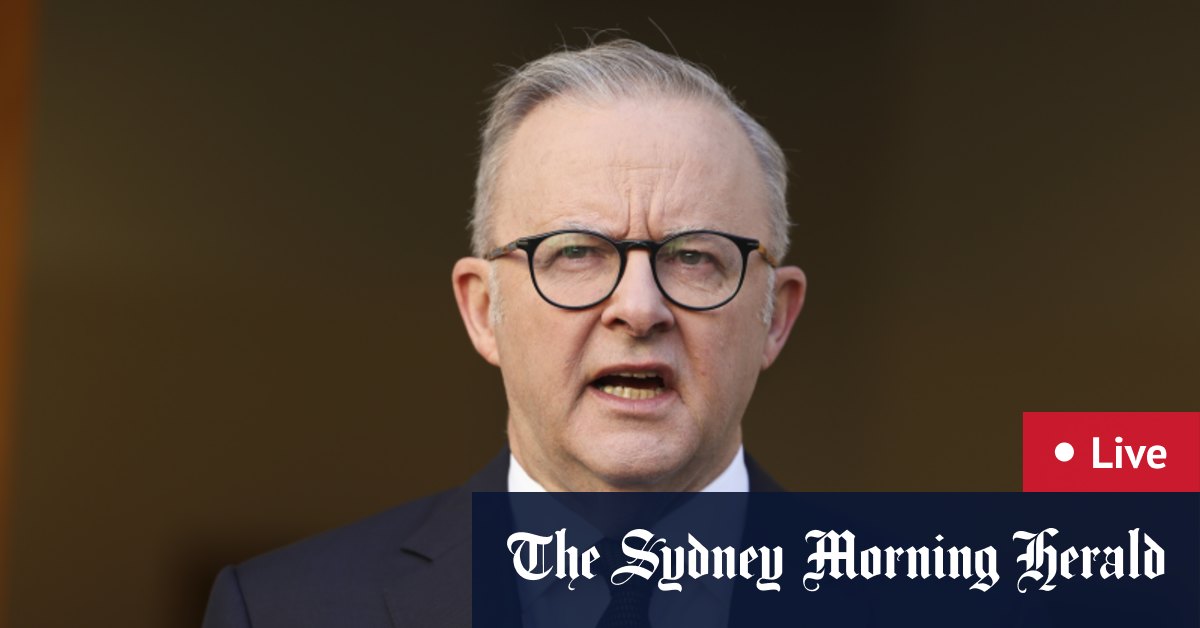Australia
ADF sounds alarm on Chinese warships operating close to Australia; Trump moves to impose reciprocal tariffs

A Growing Rift: Australia and the U.S. Trade Dispute
The relationship between Australia and the United States has hit a bump following a trade dispute over steel and aluminum exports. The Trump administration has accused Australia of violating a verbal agreement by flooding the U.S. market with aluminum, a claim that has been met with fierce opposition from Australian Opposition Leader Peter Dutton. Dutton has categorically denied the suggestion that Australia is exploiting the U.S., emphasizing that the tariffs imposed by the Trump administration are harmful to the bilateral relationship. In a recent interview on the Nine Today program, Dutton expressed his disapproval of the tariffs, stating, “I don’t support these tariffs at all. I think they damage the relationship if they stay in place.” He also highlighted the importance of maintaining strong ties with the U.S., adding, “Now, as the president has demonstrated, he’s a dealmaker.”
The Origins of the Dispute
The trade dispute stems from a verbal agreement reportedly made by former Australian Prime Minister Scott Morrison with the Trump administration. According to Peter Navarro, one of Donald Trump’s top trade advisers, Australian exporters have been sending excessive amounts of aluminum to the U.S., contravening the terms of this informal agreement. Navarro’s accusations have sparked a heated debate, with Dutton leading the charge in defending Australia’s actions. Dutton argues that Australia has not violated any agreement and that the tariffs are unjustified. He has also criticized the current prime minister for not taking proactive steps to resolve the issue, suggesting that more effort should have been put into maintaining communication with the U.S. administration.
Opposition Leader Dutton’s Critique of the Prime Minister
Peter Dutton has been vocal in his criticism of the prime minister’s handling of the trade dispute. He believes that the prime minister should have engaged more actively with the U.S. administration, particularly President Trump, to prevent the imposition of tariffs. Dutton pointed out that other world leaders, such as Israeli Prime Minister Benjamin Netanyahu, Japanese Prime Minister Shigeru Ishiba, and Jordanian King Abdullah II, have already met with Trump following his inauguration. He noted that the prime minister’s lack of engagement has put Australia at a disadvantage, stating, “I just think the prime minister has dropped the ball here. He’s just not up to the task of negotiating these big deals.” Dutton also expressed his confidence that a mutually beneficial deal could have been struck if the prime minister had been more proactive in his approach.
The Prime Minister’s Engagement with the U.S.
Despite Dutton’s criticism, the prime minister has had some level of engagement with the U.S. administration. Foreign Minister Penny Wong was among the few foreign dignitaries invited to Trump’s inauguration in January and was the second international leader to meet with U.S. Secretary of State Marco Rubio. However, Dutton argues that this level of engagement is insufficient, especially given the importance of the U.S.-Australia relationship. He emphasized the need for more direct communication between the prime minister and President Trump, suggesting that a face-to-face meeting could have helped to resolve the trade dispute amicably. Dutton also mentioned that there had been limited engagement from the Australian ambassador or foreign minister with their U.S. counterparts, which he believes has contributed to the current impasse.
The Broader Implications of the Trade Dispute
The trade dispute over steel and aluminum tariffs has broader implications for the U.S.-Australia relationship. While the tariffs themselves may not have a significant economic impact on Australia, the diplomatic fallout could strain the two nations’ long-standing alliance. Dutton has warned that the tariffs, if left in place, could damage the trust and cooperation that have historically defined the relationship. He also highlighted Australia’s potential to offer more to the U.S., stating, “There is a deal to be done with the United States, and there is a lot Australia has to offer.” This suggests that Dutton believes Australia could negotiate a more favorable agreement if the prime minister were to take a more active role in the negotiations.
A Call for Proactive Diplomacy
In conclusion, Peter Dutton’s opposition to the Trump administration’s tariffs reflects his concerns about the potential long-term damage to the U.S.-Australia relationship. He has called for more proactive diplomacy from the prime minister, arguing that a failure to engage effectively with the U.S. administration has led to the current dispute. Dutton’s critique underscores the importance of strong leadership and effective communication in maintaining international alliances. As the trade dispute continues, it remains to be seen whether the prime minister will take Dutton’s advice on board and work towards a resolution that benefits both nations. The outcome of this situation will not only impact the trade relationship but also the broader strategic partnership between Australia and the United States.